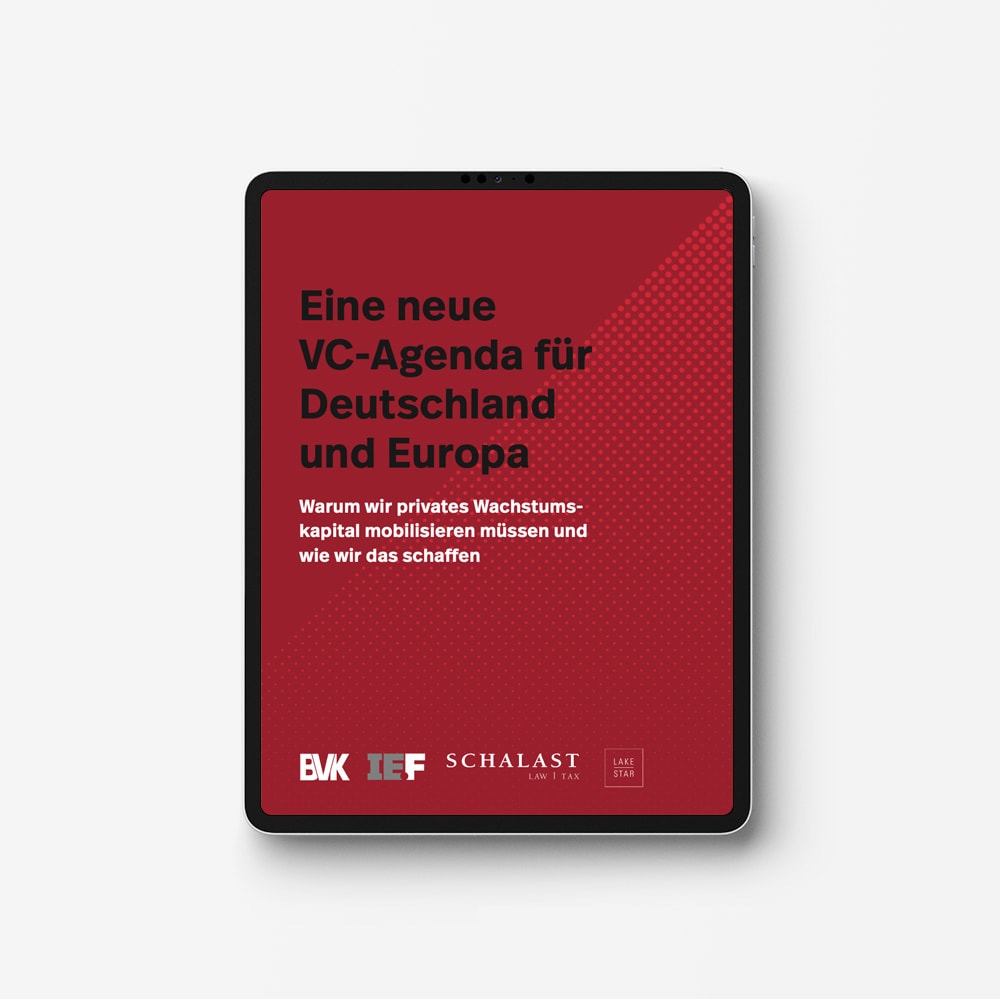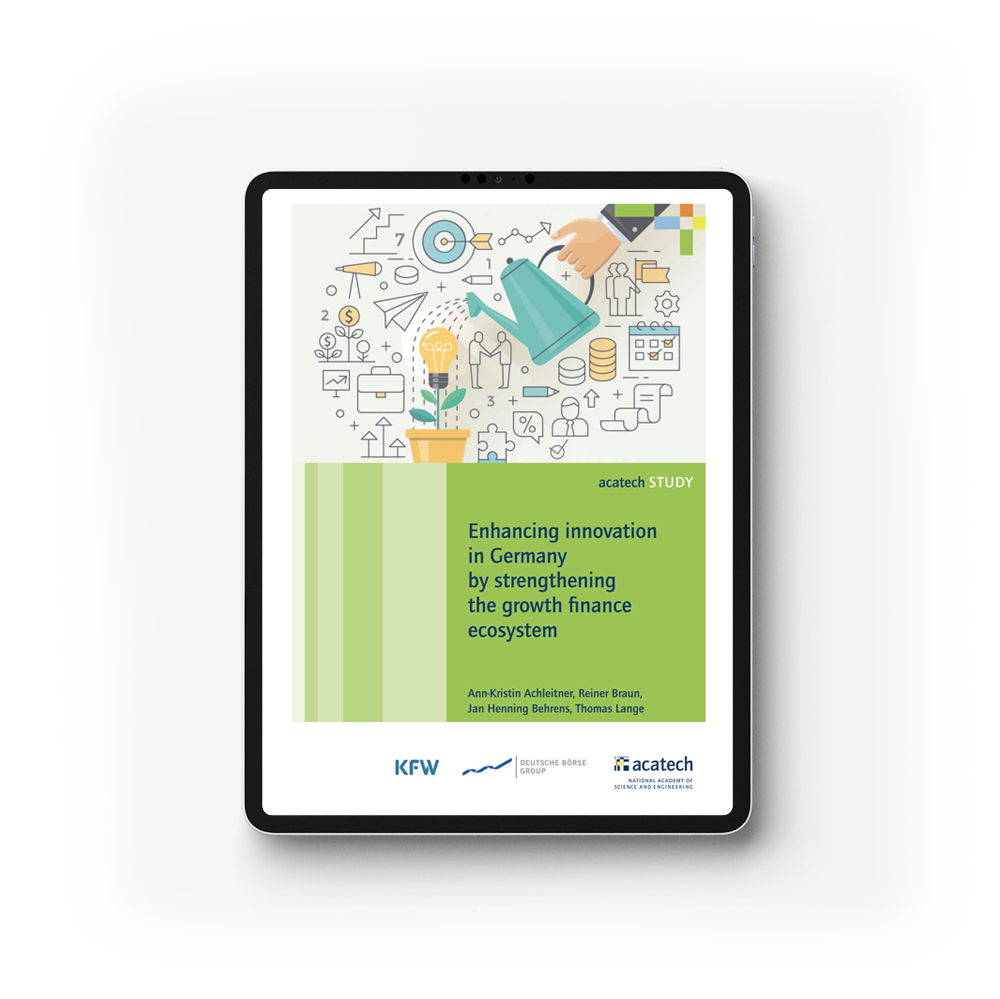Research Reports
Because we believe in scientific research as the basis for our activities, we publish our own research reports on selected topics.
Explore proprietary research reports of our team:

A new VC agenda for Germany and Europe
A new VC agenda for Germany and Europe - Why we need to mobilize private growth capital and how we can do it
In this study, we highlight the persistent major hurdles hindering access to venture capital, including a lack of private capital from institutional investors, internationally uncompetitive legal frameworks and a lack of opportunities for startup employees and citizens to participate in the value creation of startups and young companies.
Portfolio Construction in Venture Capital: The Impact of Portfolio Size on Risk and Returns
Returns in Venture Capital (VC) are characterized by extreme outliers and a notable number of defaulted transactions. Building a well-diversified portfolio is pivotal for investors to achieve sufficient downside protection without disproportionately trimming upside potential. This report simulates VC returns to understand the impact of portfolio size on risk and return potential. The simulations are based on the semicontinuous log-normal model of Juergens et al. (2022).
The analysis is conducted with 10,000 Monte Carlo simulations, each with a universe of 900 VC funds in total, which are equally distributed in early-stage (pre-seed and seed), mid-stage (Series A to Series B), and later-stage (Series C or later). That is 300 funds per stage focus and 18,000 transactions in total across all funds. The portfolio composition assumes equally-weighted portfolios of funds with 30 transactions in early-stage funds, 20 transactions in mid-stage funds, and 10 transactions in later-stage funds.

Enhancing Germany's Innovation Power – Bolstering the Ecosystem for Growth Financing
Lack of capital for high-tech growth companies is a major weakness in Germany’s innovation system, becoming a critical competitive disadvantage especially during digital transformation. This transformation demands radical technological innovations, new business models, and rapid growth. Acatech, in collaboration with KfW and Deutsche Börse, brought together various stakeholders from the financial sector, high-tech growth companies, industry leaders, and academics to assess the situation and develop actionable strategies for policy, business, and academia.